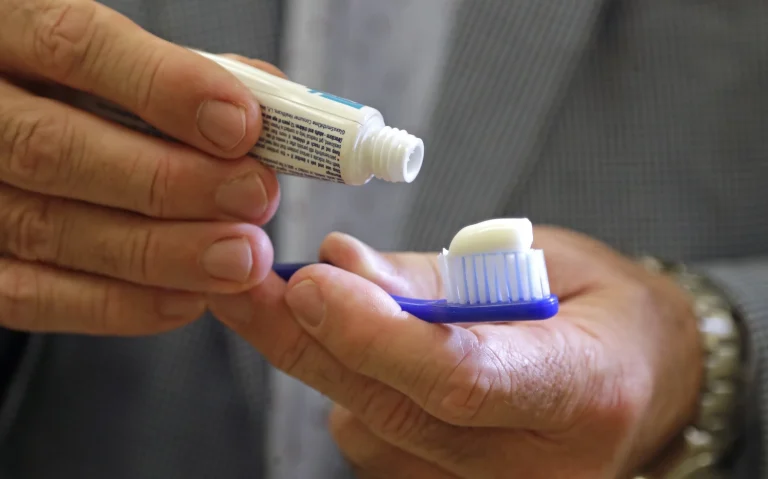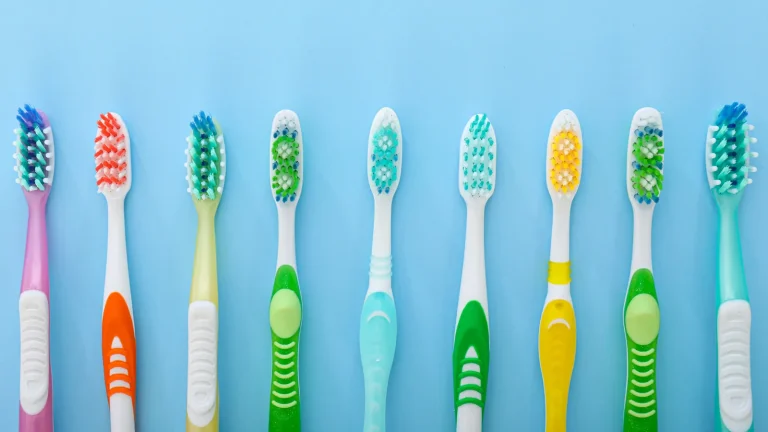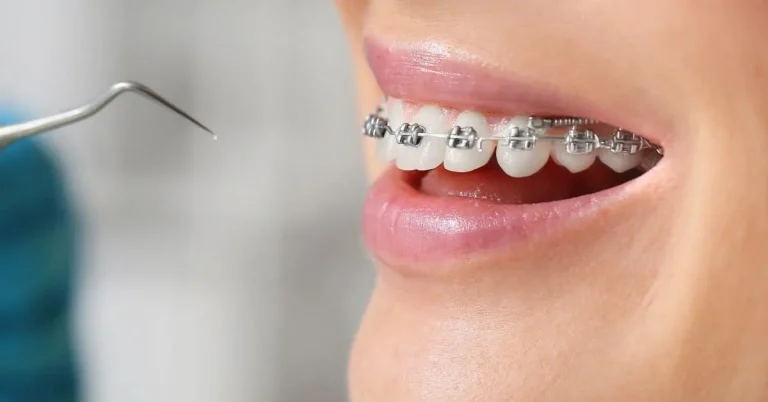Smart Toothbrushes: Are They Worth the Investment?
Let’s face it—brushing your teeth isn’t exactly the most exciting part of your day. But what if your toothbrush could make it a little more interesting? Enter smart toothbrushes, the latest tech-savvy addition to the world of oral care. These high-tech gadgets promise to revolutionize the way you brush, with features like pressure sensors, timers, and even app connectivity to track your progress. But here’s the million-dollar question: Are smart toothbrushes really worth the investment, or are they just another overpriced gadget collecting dust on your bathroom counter?
In this article, we’ll dive into the nitty-gritty of smart toothbrushes, exploring their features, comparing popular models, and weighing the pros and cons. Whether you’re a tech enthusiast looking to upgrade your routine or someone just curious about whether these brushes live up to the hype, we’ve got you covered. By the end, you’ll have all the info you need to decide if a smart toothbrush is the right fit for your smile—and your wallet. So, let’s get brushing (the facts, that is)!
What Makes a Toothbrush “Smart”?
Alright, let’s break it down—what exactly makes a toothbrush “smart”? It’s not like it’s going to start solving math problems or giving you life advice (though that would be pretty cool). Instead, smart toothbrushes are designed to take your brushing game to the next level with some seriously nifty features.
First up, pressure sensors. Ever been told you’re brushing too hard? Yeah, me too. Turns out, scrubbing your teeth like you’re sanding a piece of wood isn’t doing your gums any favors. Smart toothbrushes come equipped with sensors that alert you when you’re applying too much pressure, so you can avoid damaging your enamel or irritating your gums.
Then there’s the built-in timer. You know that awkward moment when you’re brushing your teeth and you’re like, “Has it been two minutes yet?” Smart toothbrushes take the guesswork out of it by buzzing or beeping when you’ve hit the recommended brushing time. Some even split the time into quadrants, so you’re giving each part of your mouth equal attention.
But wait, there’s more! Many smart toothbrushes come with app connectivity. Yep, you can sync your toothbrush to your smartphone and get real-time feedback on your brushing habits. Think of it like having a personal dental coach in your pocket. These apps can track your brushing duration, coverage, and even remind you when it’s time to replace your brush head.
And let’s not forget customizable brushing modes. Whether you’ve got sensitive teeth, braces, or just want a deep clean, smart toothbrushes often come with multiple settings to suit your specific needs.
So, in a nutshell, a smart toothbrush isn’t just a toothbrush—it’s a high-tech tool designed to help you brush smarter, not harder. But does all this tech actually make a difference? Let’s keep going to find out.
Top Smart Toothbrush Models Compared
With so many smart toothbrushes on the market, it can feel overwhelming to choose the right one. Don’t worry—we’ve done the homework for you. Here’s a quick rundown of some of the most popular models, their standout features, and who they’re best suited for.
1. Oral-B iO Series
- Key Features: Magnetic drive for a smooth brushing experience, AI-powered tracking, and a customizable display.
- Price: On the higher end (around $200-$300).
- Best For: Tech lovers who want the latest and greatest in oral care.
2. Philips Sonicare DiamondClean
- Key Features: Sonic technology for deep cleaning, multiple brushing modes, and a sleek travel case.
- Price: Mid-range (around $150-$200).
- Best For: Those who prioritize a luxurious brushing experience and portability.
3. Quip Smart Toothbrush
- Key Features: Simple design, gentle vibrations, and a subscription-based brush head replacement service.
- Price: Budget-friendly (around $50-$75).
- Best For: Minimalists and first-time smart toothbrush users.
4. Colgate Hum
- Key Features: Real-time coaching via app, pressure sensors, and a compact design.
- Price: Affordable (around $100).
- Best For: Families and kids who need a little extra motivation to brush properly.
Here’s a quick comparison table to make things easier:
| Model | Key Features | Price Range | Best For |
|---|---|---|---|
| Oral-B iO Series | AI tracking, magnetic drive | $200-$300 | Tech enthusiasts |
| Philips Sonicare | Sonic technology, travel case | $150-$200 | Luxury seekers |
| Quip Smart | Simple design, subscription service | $50-$75 | Minimalists, beginners |
| Colgate Hum | Real-time coaching, compact design | Around $100 | Families, kids |
Each of these models has its own strengths, so the best choice depends on your needs, preferences, and budget. But no matter which one you pick, you’re stepping into the future of brushing. Now, let’s talk about the benefits—and potential drawbacks—of going smart.
The Pros of Smart Toothbrushes
So, you’re probably wondering: What’s the big deal with smart toothbrushes? Are they really that much better than your trusty manual brush or even a basic electric one? Let’s talk about the perks that make these gadgets stand out.
1. Improved Brushing Habits
Let’s be real—most of us aren’t brushing as well as we think we are. Smart toothbrushes take the guesswork out of the equation. With real-time feedback on your brushing technique, you’ll know exactly where you’re missing spots or applying too much pressure. It’s like having a dental hygienist right there with you, minus the awkward small talk.
2. Personalized Oral Care
Not all mouths are created equal. Whether you’ve got sensitive gums, braces, or just want a whitening boost, smart toothbrushes often come with customizable settings to suit your unique needs. It’s like having a toothbrush that’s tailor-made for your smile.
3. Motivation Through Gamification
Okay, this one’s kind of fun. Many smart toothbrush apps use gamification to keep you motivated. Think streaks, badges, and progress reports that make brushing feel like a game. For kids (or let’s be honest, competitive adults), this can be a game-changer in building consistent brushing habits.
4. Long-Term Dental Savings
Here’s the kicker: Investing in a smart toothbrush could actually save you money in the long run. By helping you brush more effectively, these devices can reduce your risk of cavities, gum disease, and other dental issues. Fewer trips to the dentist for fillings or cleanings? That’s a win-win.
5. Convenience and Peace of Mind
With features like automatic brush head replacement reminders and progress tracking, smart toothbrushes take the hassle out of maintaining your oral care routine. You’ll always know when it’s time to switch out your brush head or schedule a dental check-up.
In short, smart toothbrushes aren’t just about flashy tech—they’re about helping you achieve a healthier, happier smile. But before you rush to add one to your cart, let’s talk about the potential downsides. Because, let’s face it, no product is perfect.
The Potential Drawbacks
As much as we love the idea of a toothbrush that practically brushes for us, smart toothbrushes aren’t without their flaws. Here are a few things to consider before taking the plunge.
1. The Price Tag
Let’s start with the elephant in the room: smart toothbrushes can be expensive. While basic models start around $50, high-end options can set you back $200 or more. And let’s not forget the recurring costs, like replacement brush heads and app subscriptions. If you’re on a tight budget, this might feel like a stretch.
2. Tech Overload
Not everyone wants their toothbrush to sync with their phone or track their brushing habits. For some, the added tech can feel unnecessary or even overwhelming. If you’re someone who just wants to brush your teeth and move on with your day, a smart toothbrush might feel like overkill.
3. Learning Curve
Smart toothbrushes come with a bit of a learning curve. From setting up the app to understanding all the features, it can take some time to get the hang of things. For older adults or tech-averse users, this might be a turnoff.
4. Dependence on Apps
While app connectivity is a major selling point, it can also be a drawback. If the app crashes, gets outdated, or isn’t compatible with your phone, you might lose access to some of the brush’s key features. Plus, not everyone wants to rely on their phone for something as simple as brushing their teeth.
5. Limited Long-Term Data
Here’s the thing: Smart toothbrushes are still relatively new to the market. While early studies show promising results, there’s not a ton of long-term data proving they’re significantly better than traditional options. If you’re a skeptic, you might want to wait for more evidence before making the investment.
So, while smart toothbrushes offer some pretty cool benefits, they’re not a one-size-fits-all solution. The key is to weigh the pros and cons based on your own needs and preferences. Speaking of which, let’s talk about who might benefit most from these high-tech tools.
Who Should Consider a Smart Toothbrush?
Smart toothbrushes aren’t for everyone, but they can be a game-changer for certain people. Here’s a breakdown of who might benefit most from making the switch to a high-tech brush.
1. Tech Enthusiasts
If you’re the kind of person who loves gadgets and gets excited about the latest tech, a smart toothbrush is right up your alley. With features like app connectivity, real-time feedback, and customizable settings, it’s like having a mini smart device for your mouth.
2. People Looking to Improve Their Brushing Habits
Let’s be honest—most of us could use a little help when it comes to brushing. Whether you’re skipping the full two minutes, missing spots, or brushing too hard, a smart toothbrush can guide you toward better habits. It’s like having a personal coach for your oral care routine.
3. Parents with Kids
Getting kids to brush their teeth can feel like pulling teeth (pun intended). Smart toothbrushes with gamified apps can make brushing fun and engaging for little ones. Plus, parents can track their kids’ progress and ensure they’re brushing properly.
4. Individuals with Specific Dental Needs
If you have braces, sensitive teeth, or gum issues, a smart toothbrush can be a lifesaver. Many models come with specialized modes to address these concerns, giving you a more tailored brushing experience.
5. Anyone Who Loves Data
Do you thrive on tracking your steps, calories, or sleep patterns? If so, you’ll probably love the data-driven approach of a smart toothbrush. From brushing duration to coverage, these devices give you insights into your oral care habits like never before.
6. People Willing to Invest in Prevention
If you’re proactive about your health and willing to spend a little extra to prevent dental issues down the line, a smart toothbrush could be a smart investment. By helping you brush more effectively, it can reduce your risk of cavities, gum disease, and other problems.
Of course, if you’re perfectly happy with your current brushing routine and don’t feel the need for extra bells and whistles, a smart toothbrush might not be necessary. But for those who fit into one of these categories, it could be worth giving one a try.
Now, let’s tackle the big question: Is the cost of a smart toothbrush justified? Let’s break it down.
Cost-Benefit Analysis: Is It Worth It?
Let’s talk numbers. Smart toothbrushes aren’t cheap, and it’s natural to wonder if they’re really worth the investment. To help you decide, let’s break down the costs and benefits to see if the math adds up.
The Costs
- Upfront Price: Smart toothbrushes range from around $50 for basic models to $300+ for high-end options.
- Ongoing Expenses: Replacement brush heads typically cost $10-$20 each and need to be replaced every 3-4 months. Some apps also require subscriptions for premium features.
- Tech Dependence: If the app or device stops working, you might lose access to key features, which could feel like wasted money.
The Benefits
- Better Oral Health: By improving your brushing habits, a smart toothbrush can help prevent cavities, gum disease, and other dental issues. This could save you hundreds (or even thousands) in dental bills over time.
- Convenience: Features like automatic reminders and progress tracking take the guesswork out of maintaining your oral care routine.
- Motivation: For some, the gamification and real-time feedback make brushing more enjoyable and consistent.
Scenarios to Consider
- For Families: If you’re buying multiple brushes, the costs can add up quickly. However, the long-term savings from fewer dental visits might make it worthwhile.
- For Individuals: If you’re already diligent about brushing and don’t have specific dental concerns, a smart toothbrush might not offer enough added value to justify the cost.
- For Tech Lovers: If you enjoy using gadgets and don’t mind the price, a smart toothbrush could be a fun and practical addition to your routine.
At the end of the day, whether a smart toothbrush is worth it depends on your budget, your oral care goals, and how much you value the added features. If you’re someone who struggles with brushing effectively or wants to take a proactive approach to your dental health, the investment might pay off in the long run.
Now that we’ve covered the costs and benefits, let’s wrap things up with a final verdict.
Conclusion
So, are smart toothbrushes worth the investment? The answer isn’t a simple yes or no—it depends on your needs, preferences, and budget. These high-tech gadgets offer some impressive benefits, from improved brushing habits to personalized oral care. But they also come with a higher price tag and a few potential drawbacks.
If you’re someone who loves tech, wants to up your brushing game, or has specific dental needs, a smart toothbrush could be a game-changer. On the other hand, if you’re happy with your current routine and don’t feel the need for extra features, a traditional brush might be just fine.
At the end of the day, the best toothbrush is the one you’ll use consistently and effectively. Whether that’s a smart toothbrush or a trusty manual one, the goal is the same: a healthy, happy smile.
Ready to upgrade your brushing routine? Check out our recommended smart toothbrushes and take the first step toward a smarter smile!
FAQs
1. What exactly is a smart toothbrush?
A smart toothbrush uses technology like pressure sensors, timers, and app connectivity to track and improve your brushing habits.
2. What are the key features of most smart toothbrushes?
Common features include pressure sensors, built-in timers, app connectivity for tracking, and customizable brushing modes.
3. Are smart toothbrushes better than regular electric toothbrushes?
Smart toothbrushes offer features like real-time feedback and personalized guidance that most regular electric toothbrushes don’t have, potentially leading to better brushing habits.
4. How much do smart toothbrushes typically cost?
Smart toothbrushes range from around $50 for basic models to $300 or more for high-end versions.
5. Do I need to use the app with a smart toothbrush?
While not always mandatory, using the app unlocks the full potential of a smart toothbrush, providing data and insights to improve your brushing technique.
6. Can a smart toothbrush actually save me money?
Yes, by promoting better oral hygiene and preventing dental problems, a smart toothbrush could potentially reduce your long-term dental costs.
7. Are smart toothbrushes good for kids?
Yes, the gamified apps and progress tracking features of many smart toothbrushes can make brushing more engaging for children.
8. What if I’m not tech-savvy? Is a smart toothbrush still a good idea?
Some smart toothbrushes have simpler designs and are more user-friendly than others. Consider a less complex model if you’re concerned about tech overload.
9. How long do smart toothbrushes last?
The lifespan of a smart toothbrush is similar to that of an electric toothbrush, typically a few years with proper care. However, replacement brush heads will need to be purchased regularly.
10. Is there scientific evidence that smart toothbrushes are better?
While research is ongoing, early studies suggest that smart toothbrushes can lead to improved brushing habits and oral health outcomes.







